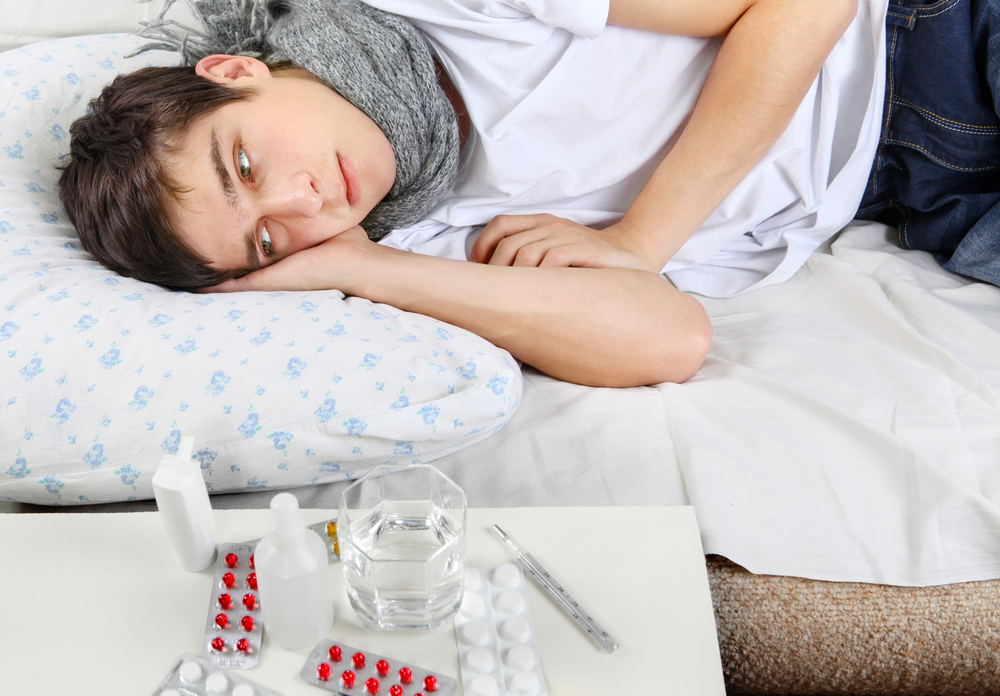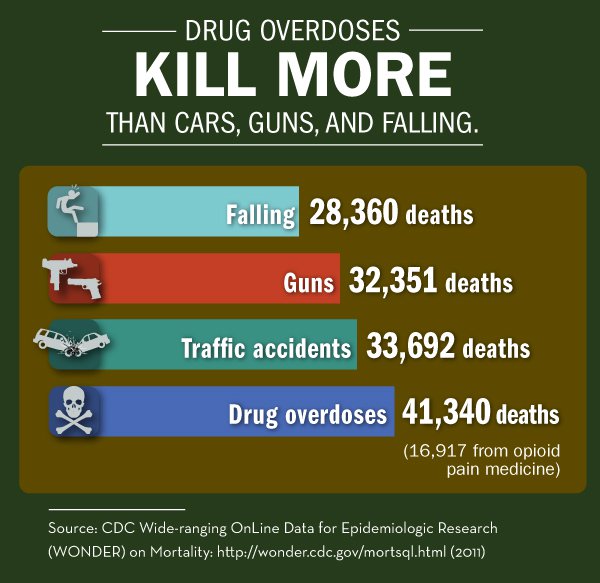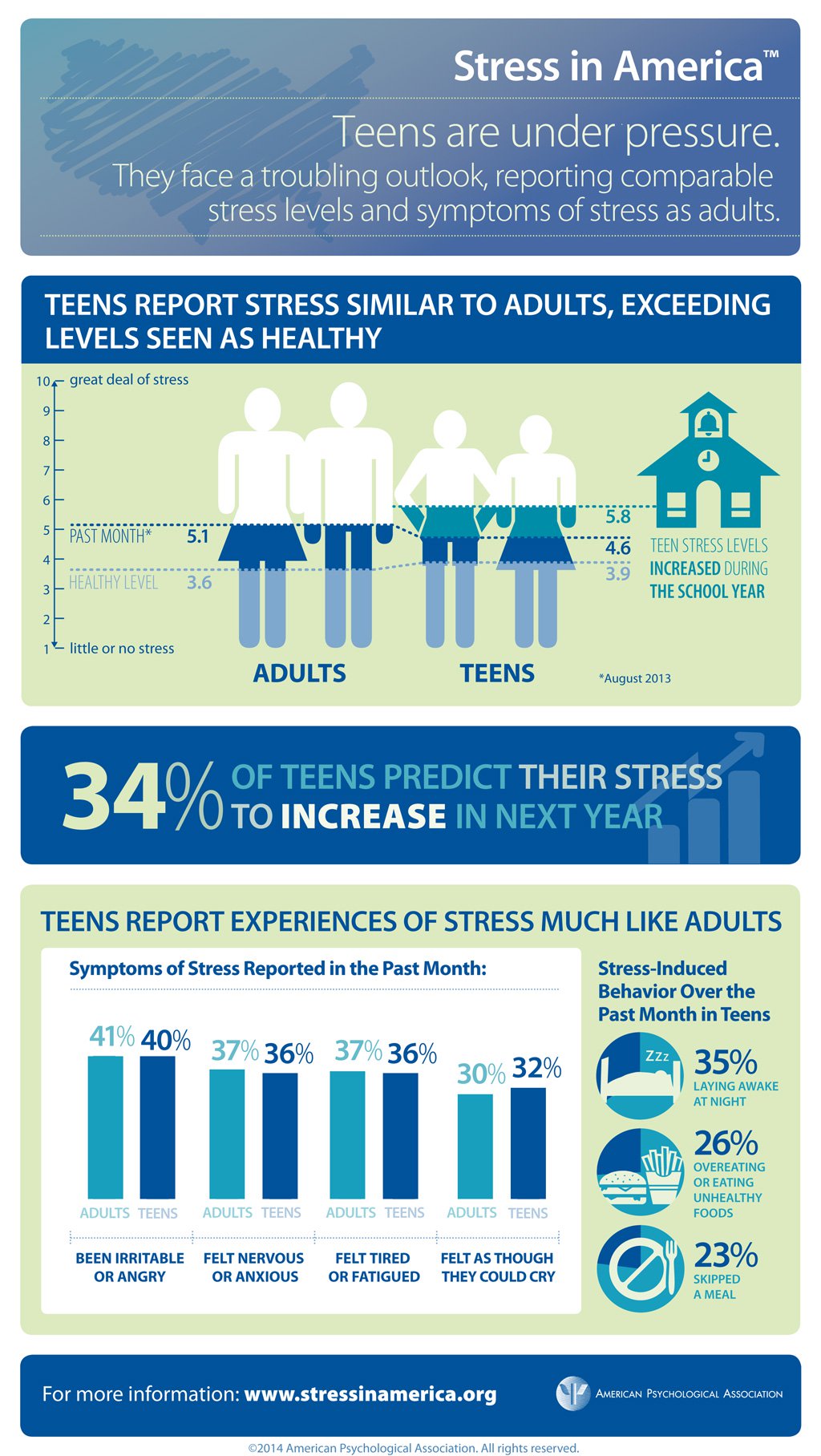Pharmaceuticals Kill More Teens Than Illegal Substances

Combine the number of overdose deaths caused by heroin and cocaine, and you still haven’t matched the number of deaths caused by pharmaceutical prescription medications each year in the United States. In fact, according to the Centers for Disease Control and Prevention (CDC) website, pharmaceutical abuse was responsible for about 23,000 deaths in 2013 — that’s more than half of the overdose deaths in the U.S. that year. These deaths are tied to teen anxiety and stress and their inability to cope. As adults and parents, we can be mindful of the teens around us, encouraging them in their pursuits of excellence and their struggles to fit in. The struggle of stress and anxiety is real in life, helping to teach the next generation to cope without the needs for a pill is critical for not only their health, but the health of the coming generations.

Prescription drugs have a disproportionately large effect on teenagers. A recent study published in Journal of Public Policy and Marketing sheds light on this issue, which the CDC has labeled an “epidemic.”
Over 1,000 teenagers in 40 different regions around the U.S. participated in an online survey that questioned them about their use of alcohol, tobacco, legal drugs and illegal drugs. Participants were asked if they suffer from anxiety, if they have a desire to be “popular,” how often they participate in exciting activities, and whether they consider using drugs risky.
The authors of the study — Richard Netemeyer of the University of Virginia, Scot Burton of the University of Arkansas, Barbara Delaney of the Partnership for Drug Free Kids, and Gina Hijjawi of American Institutes for Research — published several conclusions.
First, their results showed use of pharmaceuticals has a linear correlation with the amount of anxiety and other psychological stress a teenager experiences each day. Pharmaceutical use also increases with the amount of alcohol a teenager consumes.
Second, their results show prescription drug use increases exponentially in circumstances where a teenager is experiencing more severe anxiety, a heightened desire to be popular, a need to be a “good teen,” or is using other restricted substances.
“Teens need help before they reach these tipping points for prescription drug abuse,” write the authors. “Adults spotting teens with very high levels of anxiety and at least moderate use of other restricted substances should realize that these are students with a high likelihood of prescription abuse.
According to an editorial published by the New York Times in 2013, pharmaceutical advertisements have helped cultivate a “pill for every ill” approach to health care in the United States. U.S. physicians, for example, prescribe drugs as treatment for ADHD 25 times more often than European physicians. It follows that U.S. teenagers have 25 times more access to ADHD medication like Ritalin and Adderall than European teenagers.
Several organizations work to educate the public on the risks of prescription drug abuse. The National Coalition Against Prescription Drug Abuse, for example, organizes school related activities aimed at educating students about the risks of pharmaceuticals, and the Office of National Drug Control Policy is trying to implement a four-part plan to educate teenagers and monitor their use of pharmaceuticals.
Evidence from the study suggests these organizations have a long way to go. 
The causes of stress/anxiety
Anxiety can be brought upon by a slew of different things: genetics, hormones, environment, relationships, trauma, and much more. An anxiety disorder doesn’t entail just feeling stressed a little more frequently–it means someone is experiencing so much anxiety that it’s difficult to function in certain situations or moments, sometimes logical and sometimes not.
The adolescent years are some of the most trans-formative and intense, which makes it a perfect time to develop issues like anxiety. As adults, we have experience with how to properly deal with stress, but teens don’t. Not to mention that students nowadays have an enormous amount of responsibility set on their shoulders with little to no education on how to handle the stress of that correctly. It’s a recipe for disaster.
Studies shows teens experience “adult-level” stress
If you think high school is just “kid” drama and doesn’t produce “real” stress, you’re probably wrong. A study by the American Psychological Association discovered that teens feel just as much anxiety as adults–if not more at times. This isn’t just a little stress, either, it’s the type of stress that keeps you awake at night, makes you skip meals, and makes you feel depressed. The type of stress that signals a parent to begin searching out help for teen mental health issues.
In the study, it was discovered that on-average, a teen’s overall stress throughout the year was higher than an adult’s. This is probably due to the lack of experience with how to deal with stress–but it could also be linked to new factors, like social media.
Social media & anxiety
Like all new technologies, there’s always a downside that needs to be addressed–for social media, it could be the obsession with “likes” and a strong fear of missing out (FOMO). As a program that provides help for teen mental health, it’s not unusual for teens that come to us to have a pretty unhealthy relationship with technology.
In a recent CNN article, teens discussed their own experiences with social media anxiety. One girl explained how her friend nearly had a breakdown because she didn’t receive a certain amount of “likes” on a photo she posted on Facebook. This type of behavior is linked to an individual basing their self-worth on something such as “likes.” To them, not getting enough “likes” means they’re not popular or pretty enough–it can create an enormous amount of anxiety.
5 Tips for Helping Teens Cope with Stress & Anxiety without Medication
Often times teens are marketed too that there is a pill for every ill and that a drug will make it ‘all go away’. This is an unhealthy attitude. It is the adults and parents responsibility to guide, encourage and teach our children and teens. Here are some suggestions from the American Academy of Child and Adolescent Psychiatry in helping to train your teens to recognize and learn to cope with anxiety and stress and in a healthy way.
Take care of your body
- Get Enough Sleep
Healthy sleep is so important. When stress spikes, sleep often suffers. At the same time, too little sleep can make stress that much worse. Encourage your child to get enough shut-eye. Limiting screen time and stimulating activities in the evening can help your child fall asleep earlier so that he or she is better rested when the alarm buzzes. - Eat regularly. Small meals with a protein will help keep your blood sugar balanced and your mood balanced.
The study found that nearly 1 in 3 teenagers felt depressed, sad, or overwhelmed because of stress. It also was reported that about 25 percent of teens skipped a meal because they were too stressed to eat. Of those teens that said they’ve skipped a meal because of stress, about 40 percent said they do it weekly. Sounds like a pretty unhealthy way of coping with stress, right?
- Get Enough Sleep
Focus on Strengths. Point out your teens strengths and encourage them to find positives on their own.
- Positive self talk can make a world of difference in mindset and attitude and the ability to cope with stressful situations.Decrease negative self talk: challenge negative thoughts about yourself with alternative neutral or positive thoughts. “My life will never get better” can be transformed into “I may feel hopeless now, but my life will probably get better if I work at it and get some help”
- Focus on the process instead of the outcome. How hard a child tries is more important than the grade they receive.
Practice breathing and mindfulness.
- Take 30 seconds to focus on deep breathing and relaxation. “Teens tend to hold their breath to get through stressful situations, but it can impact their ability to focus,” Weiker says. “The more you hold your breath, the more tired and agitated you become.”
Remind teens that they are in control of some things in their lives.
- Encourage them to make decisions and prioritize activities when possible.
- Teach them to feel good about doing a competent or “good enough” job rather than demanding perfection from yourself and others.
- Talk to your teens. Be open to listening without judgment to teens concerns and stresses. Their stress in their youth affects them just as much as your adult stress effects you as an adult.
Take a Break from Stressful Situations.
- Encourage them to participate in activities, like listening to music, talking to a friend, drawing, writing, or spending time with a pet, to help reduce stress.
- Teaching our teens to recognize the need to rest is just as healthy as teaching them motivation and a strong work ethic.
Give them “permission” and encouragement to choose a healthy activity that makes them happy to work on without interruption for a period of time and on a regular basis.
As an adult changing our mindset to consider that teen stress is a teaching opportunity. Validating their stress levels and helping them to find healthy ways to cope is a skill that they can take with them into adulthood.
https://www.viewpointcenter.com/blog/help-teen-mental-health-causes-anxiety-disorders/
https://www.psychologytoday.com/us/blog/the-race-good-health/201402/5-tips-helping-teens-cope-stress






